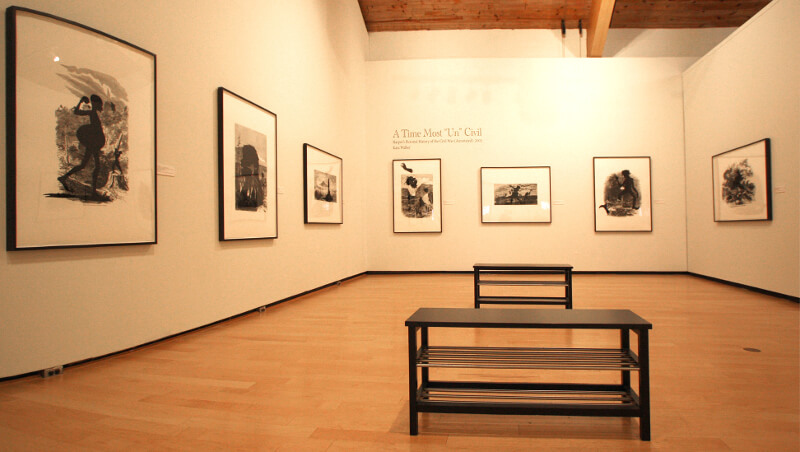Surrounded by artist Kara Walker’s exhibit “A Time Most ‘Un’Civil,” held at the Denison Museum in the spring of 2015, student and faculty philosophers gathered at a coffee discussion around the theme of tragedy, memory and memorialization.
A caveat to the reader: philosophy coffees are less about answers and more about finding the right question.
“How can we accord tragedy due respect in our memories and artworks?” asked philosophy major Erin Stevens ’16, starting off the coffee. “Who has the most right to shape our collective memories?”
In classic philosophy coffee fashion, the discussion over the next hour and a half often strayed from the original prompt. Digressions included investigations into the natures of different art forms, disagreements regarding the possible distinction between artistic and academic works, and questions about the essence of aesthetic experience.
Conversation invariably returned to Walker’s powerful pieces; hand-cut silhouettes that explore the intersection of race, gender and sexuality. “Why is it that we can talk about tragedy and race in the setting of an art gallery, but not on the street?” asked philosophy major Lisa Torio ’15. “How do we decide which settings are appropriate?”
Some consideration centered around how to define a tragedy and whether or not all tragedies should be considered worthy of memorialization.
“On one hand,” said Sam Cowling, assistant professor of philosophy “you have a massacre of innocent people and on the other hand you have a business tycoon who died from eating too much steak. Can I honor these two events in the same work of art?”
Although most, if not all, questions raised were left unanswered, the universal nature of suffering suggested by Cowling’s question seemed to provide a hint at potential consensus.
“I don’t think these prints and silhouettes are restricted in their audience,” said Barbara Fultner, head of the women’s studies department and philosophy professor. “Their message seems to translate to all sorts of suffering.”
